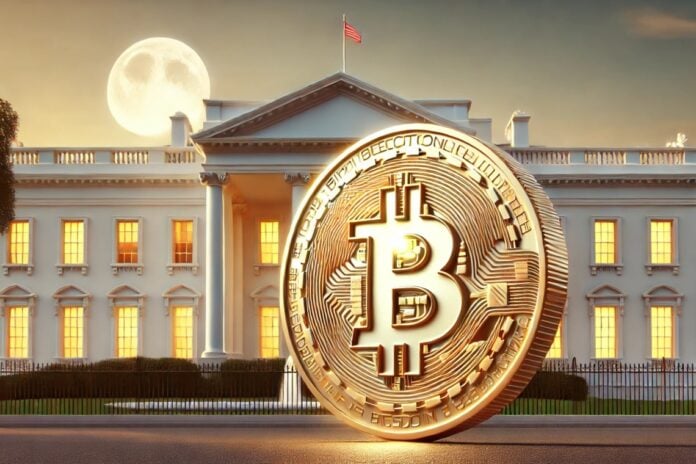Yesterday, Trump’s Crypto Czar, David Sacks, said they are considering the idea of establishing a strategic reserve in Bitcoin.
Despite these statements theoretically being interpreted as a positive stance for the crypto sector by the US government, the crypto markets, on the other hand, have taken them relatively badly.
Summary
The price of Bitcoin
Yesterday the price of Bitcoin had risen above $102,000, after falling below $92,000 on Monday.
When Sacks’ press conference started, it was still above $100,000, but just as the Crypto Czar of Trump was speaking, the price of BTC began to fall.
Within a couple of hours, it returned below $97,000, although during the night it stopped falling, settling just below $98,000.
The press conference by Sacks was widely anticipated, so much so that it is possible that yesterday’s rise up to $102,000 was triggered precisely by the expectations regarding what he might have said.
In particular, many probably expected that he would confirm the intention to create a strategic reserve in Bitcoin for the USA, especially after Trump’s executive order which provides for the establishment of a US sovereign fund.
Such expectations turned out to be excessive, and since the confirmation of the creation of the strategic reserve in BTC did not arrive, the markets reacted with a certain disappointment.
Trump: the strategic reserve in Bitcoin
Donald Trump had promised the creation of a strategic reserve in Bitcoin in the USA already during the election campaign, before the elections on November 5, 2024.
The new president took office on January 20, 2025, but since then the concrete steps made in that direction have been few.
Indeed, as actually confirmed yesterday by Sacks himself, a single step forward has been made, which is not particularly concrete: the initiation of the assessment of the feasibility and opportunity of establishing a strategic reserve in Bitcoin in the USA.
This necessarily implies that the final decision in theory should not even have been made yet.
In other words, in the hypothetical case where the above evaluation yields negative results, it is absolutely possible that the USA may decide not to establish any strategic reserve in BTC.
However, Trump seems so favorable to a similar initiative that as of today the markets are effectively betting that not only will the evaluation yield positive results, but that the strategic reserve will indeed be created.
It should not be forgotten that the USA, through the Department of Justice, already possess nearly 200,000 BTC, with a value in US dollars exceeding 19 billion.
The idea of not selling those Bitcoin, as always done in the past, but keeping them by placing them within a strategic reserve seems definitely feasible, and this is why the markets are actually betting in favor. And this is also why they reacted with disappointment to the caution shown yesterday by Sacks on this matter.
The USA and Bitcoin
Until today, the only direct relationship that U.S. national institutions have had with Bitcoin seems to be precisely those almost 200,000 BTC acquired thanks to seizures of digital assets within judicial cases for various crimes.
In reality, over the last ten years, the Department of Justice of the USA has seized well over 200,000 Bitcoin, but over the years a good part has already been sold at auction.
Famous, for example, is the case of Tim Draper, who in 2014 managed to win as many as 30,000 BTC during one of these auctions, buying them at an average price of only $632 each. The U.S. Department of Justice then collected less than 19 million dollars with that sale, while today those 30,000 BTC would be worth almost three billion.
It is probably precisely for this reason that Trump would like the USA government to hold the BTC it already possesses indefinitely, so as to perhaps have a kind of reserve to draw upon in times of need.
However, from a legal standpoint, it might not be simple to establish a government strategic reserve in Bitcoin according to the law. Sacks stated yesterday that it might not be necessary to resort to the sovereign fund for this institution, but it cannot be ruled out that to solve the most challenging legal issues, one might end up opting for that solution.

